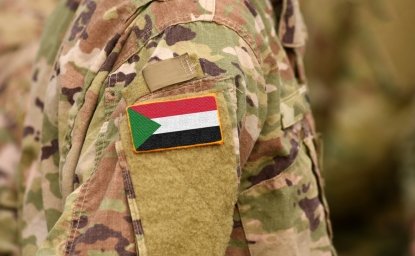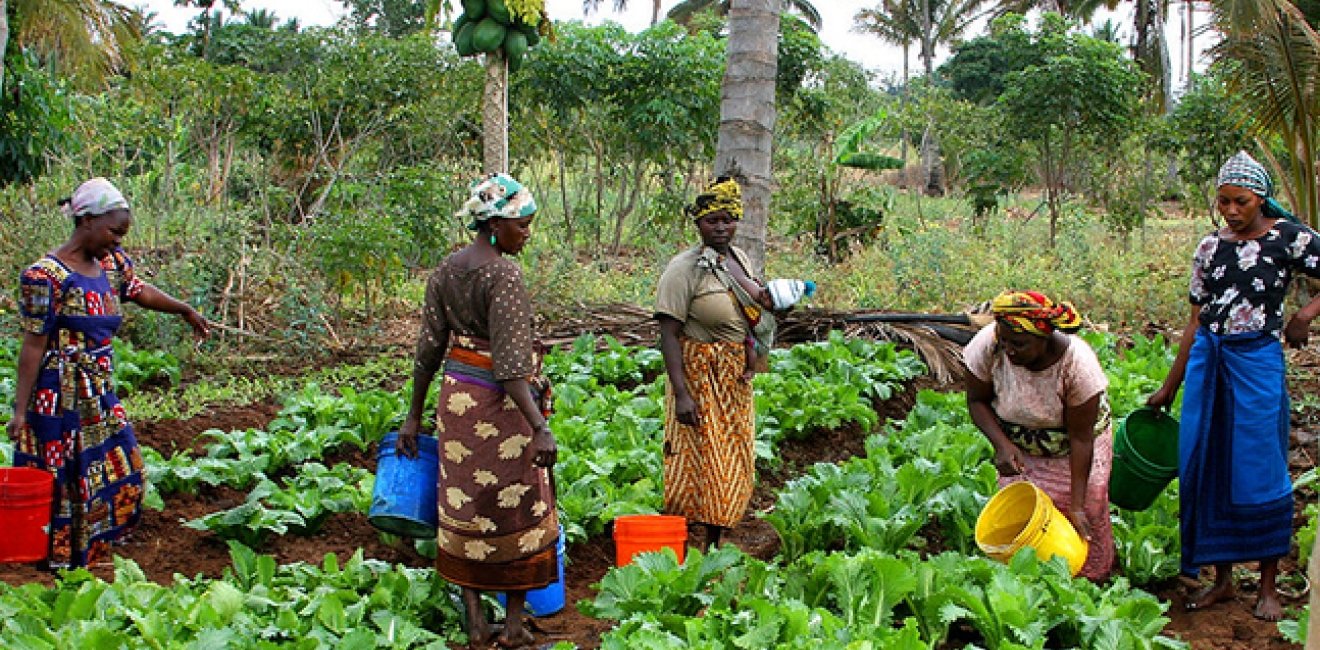
A blog of the Africa Program
The outbreak of the coronavirus disease (COVID-19) has devastated the global human security landscape. Currently, there are 7,068,144 confirmed cases and 400,857 deaths worldwide, while 3,496,290 persons have recovered.[1] Beyond the human toll, the pandemic is projected to contract the global economy by 5.7 percent in 2020, with severe consequences on economic development in countries across the world. In Africa, 194,141 confirmed cases of COVID-19 have been recorded as of June 7, with 5,304 deaths and 85,447 recoveries. In West Africa, the pandemic has spread across the 15-member states of the Economic Community of West African States (ECOWAS), with 42,206 confirmed cases and 882 deaths. Although recorded cases in West African states are relatively low for now, their governments have nonetheless introduced a suite of responses including restriction on movements to mitigate the spread of the pandemic. In addition to the health aspect of West African states' responses, measures have also been taken to mitigate the acute economic impact of the pandemic. Notwithstanding this, the region's responses to the COVID-19 pandemic appear to be generalized, with relatively less attention devoted to the specific vulnerabilities of women. This inattention to the gender aspect has heightened the impact of the pandemic on West Africa's health and economic security. Given the significant role women play in socio-economic development in West Africa, disregarding the gender gap in COVID-19 responses has the potential to exacerbate the already entrenched gender inequalities in the socio-economic sphere of societies in the region.
Risks, Vulnerabilities, and the Impact of COVID-19 on Women's Security in West Africa
Women are critical players in socio-cultural activities across West Africa. As primary caregivers, women provide care for the aged, sick and young, and perform a wide range of household chores. A significant number of health and essential service providers at the front line of the COVID-19 response in the region are also females. Beyond this, women are key actors in the socialization of individuals and families within their communities. Religious and cultural activities in communities are also centered on women. The highly social role of West African women heightens their vulnerability, and that of their dependents, to COVID-19 infection. The centrality of women to social interactions in communities makes gender mainstreaming of COVID-19 responses imperative to mitigating the spread of the pandemic.
West African women with pre-existing health conditions are among the most vulnerable persons in the pandemic. Such conditions include HIV/AIDS, pregnancy, and prenatal issues, all of which require periodic urgent access to healthcare. However, the already ill-equipped public health infrastructure across West Africa has hampered women's access to quality healthcare. The impact of COVID-19 in the region has further limited access to healthcare for women, including adolescent girls, with pre-existing health conditions. In an effort to ensure that COVID-19 cases are within a manageable range, governments and health agencies have concentrated essential healthcare resources on the coronavirus threat. An unfortunate result has been deaths caused by reduced treatment for medical issues other than coronavirus, as documented for example in Nigeria. This diversion of scarce healthcare resources to address COVID-19 has posed a particular challenge to women and other vulnerable groups in the region who need urgent medical attention for non-coronavirus medical issues.
Another gender-based vulnerability posed by COVID-19 is that the closure of schools as part of lockdown measures has negative implications on girls' education. With more than 120 million students out of school in West and Central Africa, children — particularly girls in marginalized communities across the region — are at greater risk for a variety of social threats, including mistreatment, exploitation, sexual and gender-based violence, and teenage pregnancy. This scenario was vivid in Sierra Leone during the Ebola outbreak in 2014, when school closures coincided with spikes in teenage pregnancy, child labor, and sexual abuse and neglect of children.
The economic impact of the coronavirus pandemic on women in the sub-region is a further cause for concern. Women are key players in the West African economy, especially in agriculture. About 89 percent of women in Africa are employed in the informal sector of the economy, with low income and no benefits. Also, women provide more than 50 percent of agricultural labor in Sub Sahara Africa — the highest proportion in the world. About 70 percent of Africa's food is produced by women. Rural women in West Africa dominate subsistence farming and the agriculture business supply chain in order to provide household income and food security. They also engage in food-related, non-farming activities such as the processing, preserving, and marketing of agricultural products, as well as the development of local markets. A significant number of West African women are also engaged in small-scale businesses, grocery stores, roadside selling, and other petty trading to support household income and livelihoods. World Bank projections of the COVID-19 pandemic's impact forecast a slowdown in Africa's annual economic growth from 3.2 percent to 1.8 percent, as well as a reduction in the continent's already low human development in 2020. Moreover, agriculture production is estimated to contract from 2.6 to 7 percent in the year 2020 if trade blockages persist in Africa. In West Africa, this will affect women adversely considering their dominance in the value chain of the agro-business sector. As a result, women's exposure to coronavirus has an outsized effect on West African homes and communities, whether through infection or via lockdown-driven economic contraction. For this reason, it is imperative for states to prioritize gender disaggregation in their COVID-19 responses to enhance resilience against the spread of the pandemic.
Leveling the Gender Gap in West Africa's COVID-19 Response
In order to address the specific social, health, and economic challenges facing West African women and girls, gender disaggregation of COVID-19 responses is necessary. By formulating multi-dimensional responses that touch on addressing gender issues along with economic and social issues, the strides made in recent years to promote gender equality will be maintained while the region fights against the virus.
States should also increase support for women-owned micro-businesses and women's activity in the informal economy. Such support would provide women with some form of protection until the regional economy begins to recover from the pandemic lockdown. This would ensure the sustainability of the sources of women's livelihood during the pandemic period.
Women's access to healthcare and information on COVID-19 must also be increased, especially in rural and other remote areas of West Africa, in order to reduce their vulnerability to the virus. This should be linked with provision of hotlines for reporting sexual and gender-based violence against women.
Osei Baffour Frimpong is a Regional Researcher and Conflict Analyst with the West Africa Network for Peacebuilding (WANEP), a member organization of the Southern Voices Network for Peacebuilding (SVNP) in Ghana. He was a Southern Voices Network for Peacebuilding (SVNP) Scholar and an Africa Program Scholar during spring 2020.
Photo source: Maza Wanawake Kwanza Growers Association. Credit: USAID/Tanzania. Source: https://www.flickr.com/photos/usaidafrica/7269688488. License: U.S. Government Works
[1] See current COVID-19 data available at the following sources: https://coronavirus.jhu.edu/map.html; https://www.cnn.com/interactive/2020/health/coronavirus-maps-and-cases/; https://www.myjoyonline.com/category/news/.
Author

Lead Regional Researcher and Conflict Analyst, West Africa Network for Peacebuilding (WANEP), Ghana

Africa Program
The Africa Program works to address the most critical issues facing Africa and US-Africa relations, build mutually beneficial US-Africa relations, and enhance knowledge and understanding about Africa in the United States. The Program achieves its mission through in-depth research and analyses, public discussion, working groups, and briefings that bring together policymakers, practitioners, and subject matter experts to analyze and offer practical options for tackling key challenges in Africa and in US-Africa relations. Read more

Explore More in Africa Up Close
Browse Africa Up Close
State Actions, Narratives, and Ethnicity in Kenya



